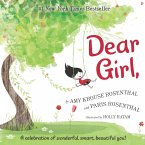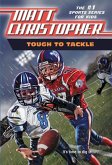Instead of leaving parents guessing about what is appropriate, this book walks them through the nuances of young minds and how they process the world. Drawing from real-life examples and tested approaches, it provides insight into what children are ready to understand at different stages of development. It demystifies the process of tailoring explanations, ensuring children feel reassured and supported without being overwhelmed by information they aren't ready to handle.
One of the cornerstones of this book is its emphasis on balance. Parents often feel torn between wanting to protect their children from harsh realities and ensuring they feel informed enough to navigate their environment safely. This guide equips parents with strategies to walk that fine line, offering age-appropriate ways to address sensitive issues without robbing children of their innocence or curiosity.
Every chapter provides actionable steps to address common yet challenging scenarios. What do you say when your child overhears a disturbing news story? How do you explain a family crisis without sharing unnecessary details? What Your Kids Shouldn't Know breaks down these scenarios, helping parents approach each one with clarity, compassion, and confidence.
Parents are also shown how to turn the tablesshifting from providing answers to asking thoughtful questions that encourage children to share their thoughts and concerns. This approach ensures kids feel heard and respected, creating a dialogue rather than a lecture. It's not just about what you say but also about creating a safe space where kids feel comfortable coming to you with their worries. The book doesn't shy away from topics that are often brushed aside. It addresses cultural and societal challenges, acknowledging that children today are exposed to far more through media, peers, and their environment. Parents will learn how to manage these external influences by becoming the voice of calm, reason, and guidance that their children can rely on.
For parents worried about saying "too much" or "too little," the book provides a framework for determining what is developmentally appropriate. Using simple guidelines and examples, it helps parents decide how much detail is necessary, when to stop, and how to revisit topics as children grow. This ensures that discussions are neither overwhelming nor dismissive. In addition to addressing tough topics, the book highlights the importance of timing. Sometimes, it's not about what you say but when you say it. Parents will learn how to recognize teachable momentsthose times when a child is naturally curious or open to understanding a difficult concept. Conversely, they'll also learn when to wait, allowing children to remain in their bubble of innocence a little longer.
Lastly, What Your Kids Shouldn't Know emphasizes that parenting isn't about having all the answers. It's about being present, attentive, and willing to engage in the hard conversations when they come up. Parents will find reassurance in knowing that it's okay to admit they don't know something or to say, "Let me think about how to explain that." By modeling this humility, they teach their children that it's okay to ask, wonder, and seek answers at the right time.
Dieser Download kann aus rechtlichen Gründen nur mit Rechnungsadresse in A, B, CY, CZ, D, DK, EW, E, FIN, F, GR, H, IRL, I, LT, L, LR, M, NL, PL, P, R, S, SLO, SK ausgeliefert werden.









